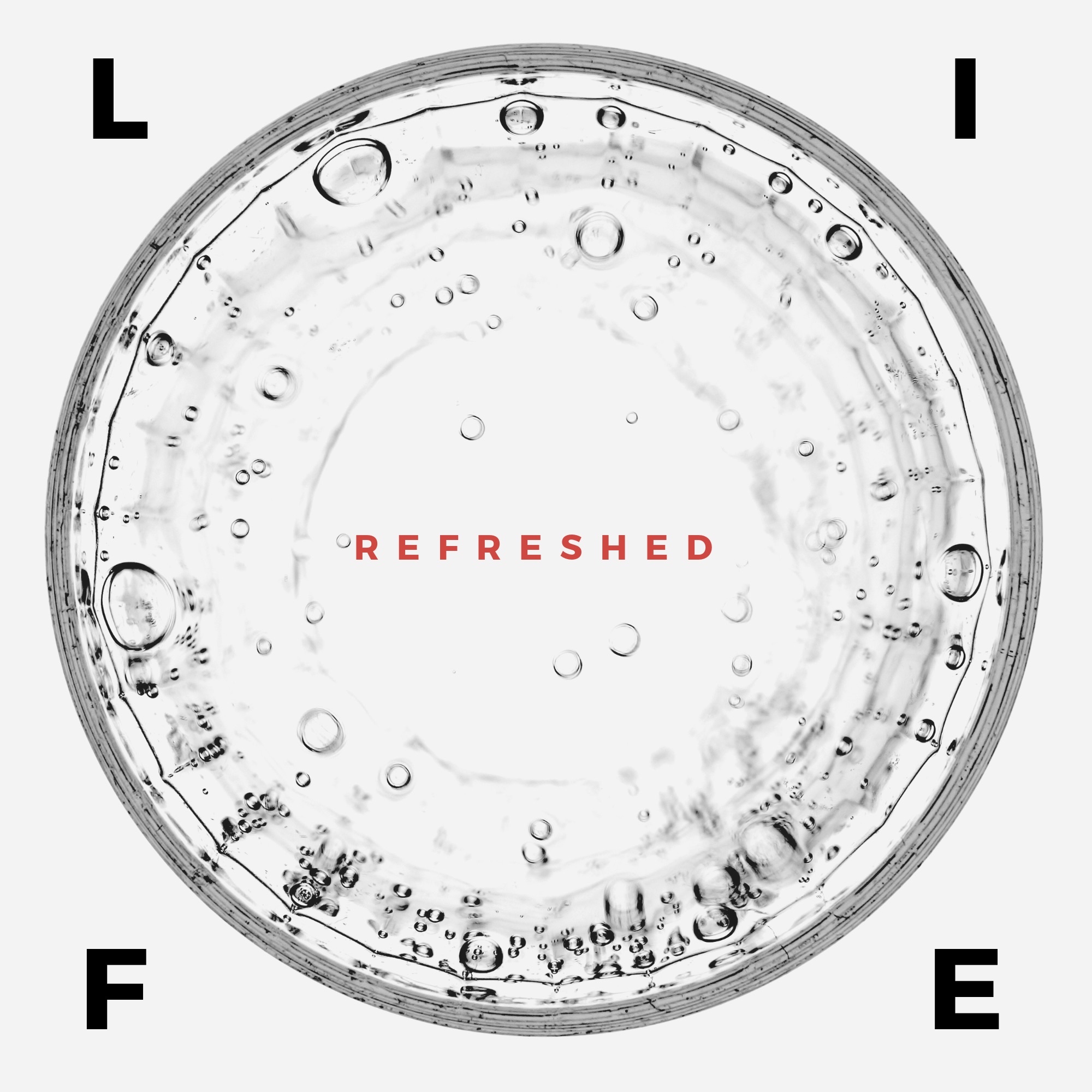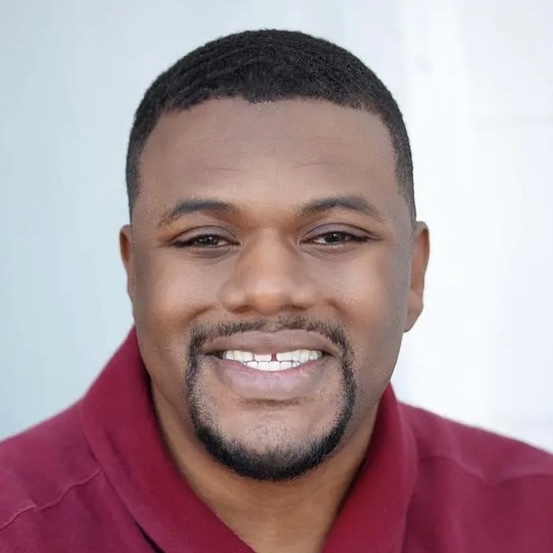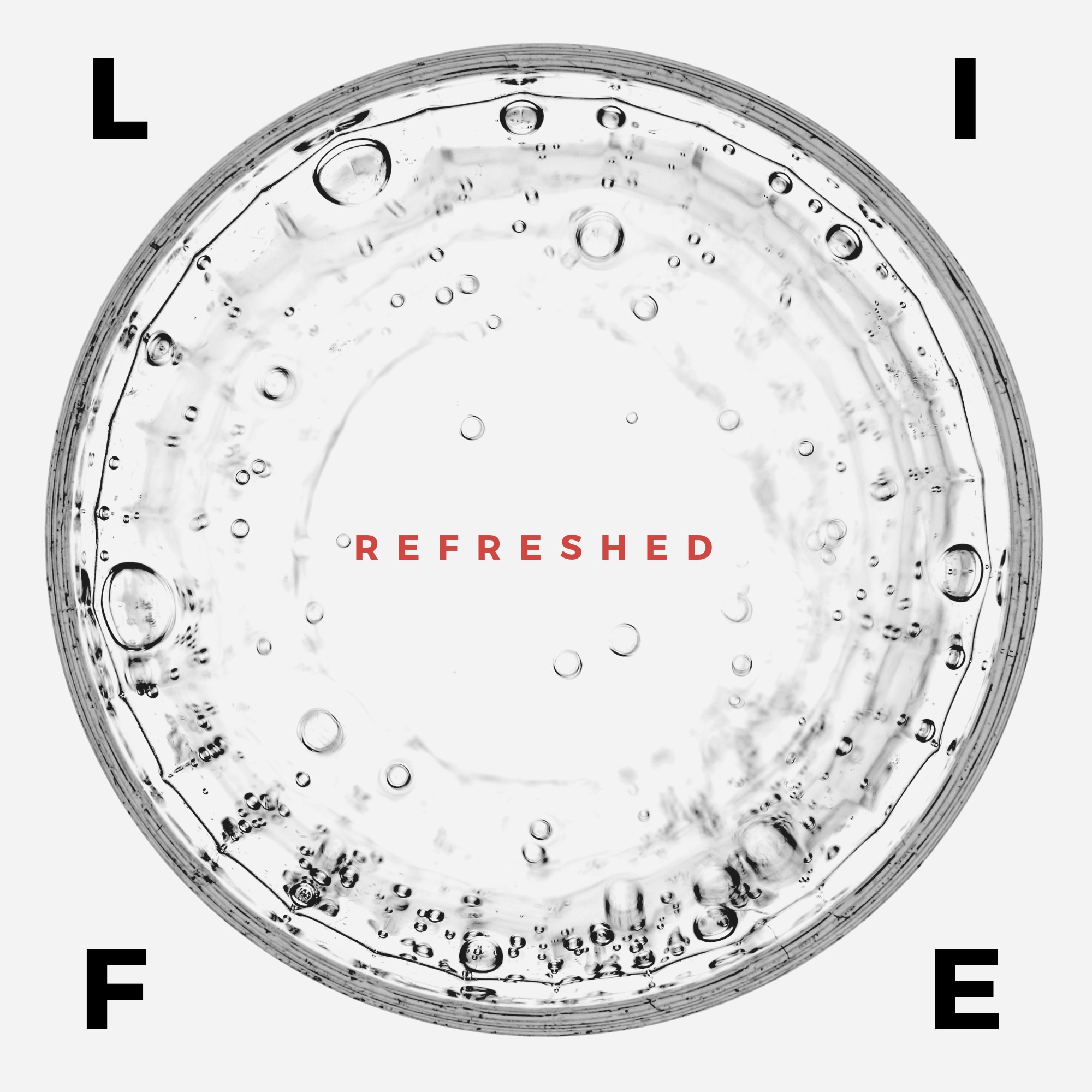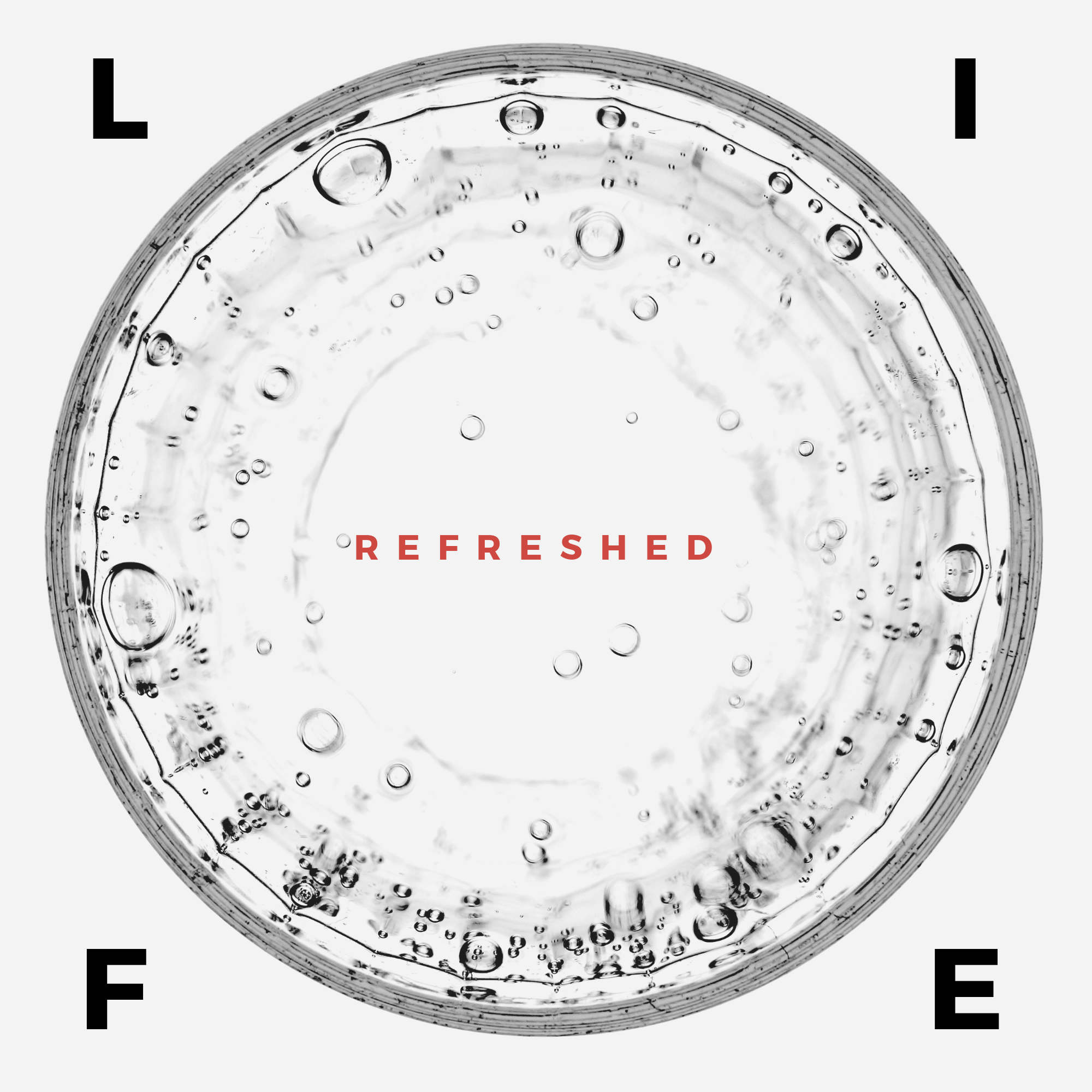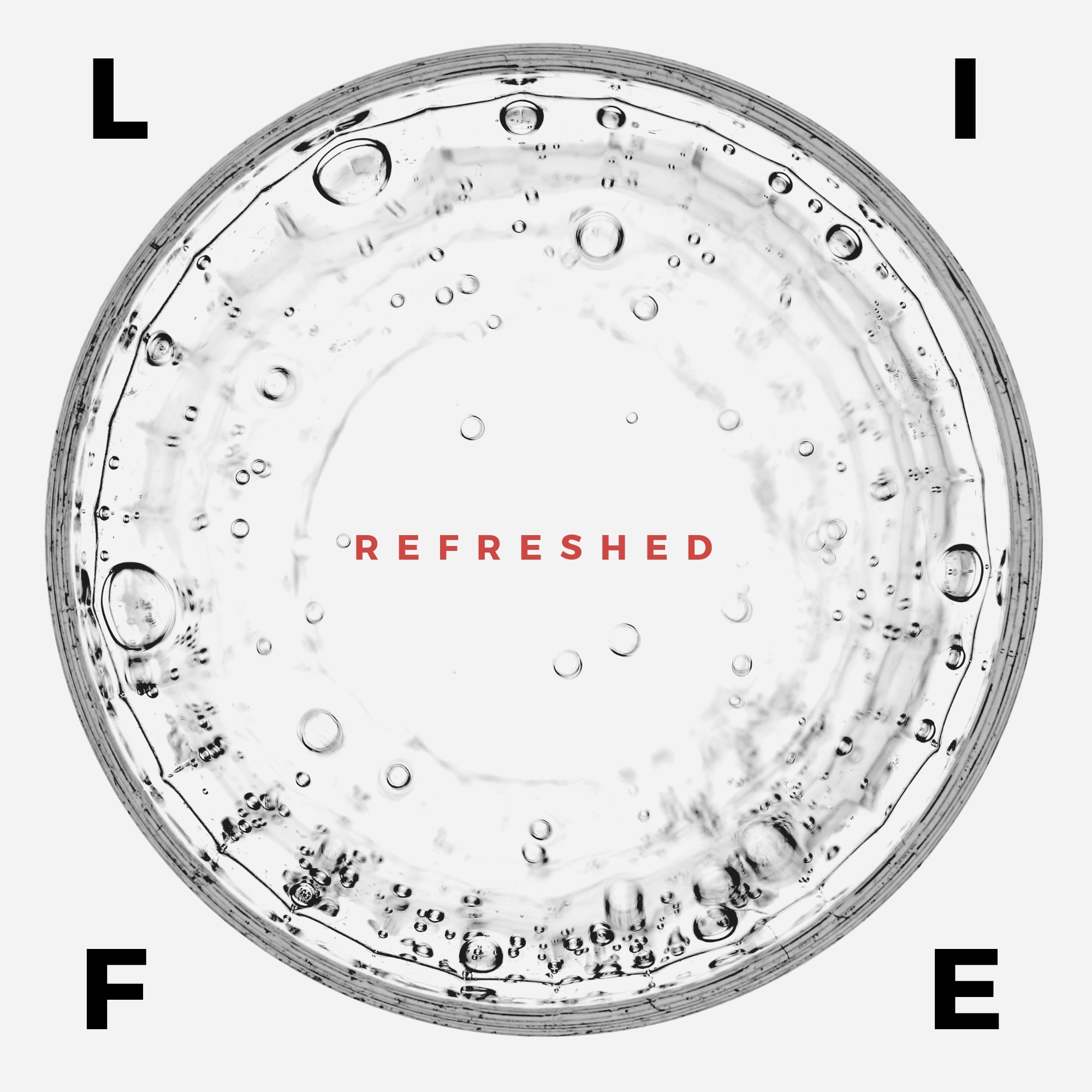Episode Transcript
Speaker 1 00:00:04 Welcome to the Life Refresh podcast. My name is Ryan Robinson, and if you are looking for a podcast that is designed to uplift, encourage and revive your heart, mind, and spirit. You're in the right place. Welcome to the journey of Becoming the version of You God designed from the foundations of the earth. Now, let's begin.
Speaker 1 00:00:30 Hello and welcome to Life Refresh Podcast. You know who it is. This is your host, Ryan Robinson. I'm, again, I'm excited and delighted to be with you yet again on this podcast journey. Um, we have been going through several, at least the last few weeks, talking about what it looks like to live a lean life. And, um, just to reiterate what we've talked about, uh, initially getting started that a, the people that live a purpose filled, prosperous and effective life are those that live a life that is lean. They only carry with them the things that they need. So we've been going on this journey of what it looks like to live a lean life in, uh, two areas so far, where we have five that we need to get to. And the first one we talked about was spiritually lean. What does it look like to be able to have a life, um, that is not lean in the sense that it's malnourished, but lean in the fact that it's healthy?
Speaker 1 00:01:36 Uh, your relationship with Christ is the foundation of anything that we need to do. 'cause if we're not building from the inside out, we will actually be losing a solid foundation. We know. And, and in the Bible it says that Jesus is the chief cornerstone. He's the foundation by which everything is built on. Therefore, if we don't have that key piece, it'll actually be really difficult to build sustainably from that standpoint. And once we have our spiritual life centered anchored, we then go into a mental leanness, reducing thought processes and, uh, making sure that we have the priority, uh, our priorities, the priority together so that we are managing our mind, our mindset and mental capacity for those things. But now we want to get to emotional leanness. What does it look like to live an emotionally lean life? It's one of the things that you need to be able to have a mental, um, what your thought process generally, um, informs how you feel.
Speaker 1 00:02:55 Sometimes if you are feeling some, I'll say if you're feeling lonely, uh, or by yourself, uh, your mindset will start going in circles. And then essentially the emotions that come with that kind of thought process begins to inform your realities. This is the fact, this is what I begin to feel. Therefore, my emotions are now getting tied into everything that I'm going to, uh, going through. And, um, it actually makes it very difficult as we're building, uh, mentally, but also emotionally, the things that, uh, we need to, in order to keep it in check. Sometimes, again, our emotions can get the best of us. I'm gonna say that again. Our emotions can get the best of us and essentially an emotional mindset or emotion. Um, have strong associations with our mental health. So if we do not have a growth mindset, we will essentially have emotions that, uh, can lead us astray.
Speaker 1 00:04:09 Um, and again, it is something that I think we, we discount because we don't necessarily separate our mental, our mental health and our emotional health, uh, in in, in this case. We just go right to and just say, this is just how I'm feeling, but not necessarily understanding that what I'm thinking can inform the way I'm feeling. Therefore, if I change the way I think about things, I can change the way I feel about things. But it is because we haven't made the effort to change our mindset that we have yet to inform our emotions. So it is, uh, just as we talked about yesterday, be transformed by the renewing of your mind that you may prove that good, acceptable and perfect will of God. If we want to manage our emotions, we have to properly get the mentality together. I'm glad we touched on that first, but what does it look like to live a lean life?
Speaker 1 00:05:12 I'm getting back to this again. Um, to live and refresh your life emotionally. There are principles by which God has placed in the Bible that inform the way that we live, inform the way that we process events in our life so that we be able to be anchored in the right mindset. Not everything we go through, the Bible says the the rain, it, it rains on the just and the unjust, which means everyone is gonna get their time at bat. Some are going to get theirs more than others. But the thing is, God is not a favor of persons. That's, that's in the Bible as well. So that means that we are all going to go through something. Now, the difference between someone who understands who they are in God or in Christ is different than a person who's not in Christ. So there are a couple things, and again, these principles can be found in, in other, uh, religions and other, uh, lifestyles of, of, uh, spirituality.
Speaker 1 00:06:29 But I'm anchoring mine on, on the Bible here, the first, and where is it? Almost? I'm gonna stick with maybe three or four of these. 'cause I think they're important and integral to living an emotionally lean life of the first one is gratitude. It is one of the most powerful things that we can do. Cultivating an attitude of gratitude is extremely, extremely important. There are so many things in items, opportunities, experiences that are all around us. In fact, Instagram and social media exacerbate those experiences and put those on front row display and in many cases can make some people jealous. It can make you jealous, <laugh>, like, I want to go to Italy, or I want to go around the world and what we have yet to learn and realize. And particularly as a culture, we don't look at what we have and are thankful for what we have.
Speaker 1 00:07:46 It is the goal of marketing in many cases to help individuals realize that the product good and services are going to be there to help enhance your life. That's the goal of marketing. It is to convey and convince you that you need that vehicle, that you would look better in that shirt <laugh>, and that you would smell great with that new cologne. And that new cologne will bring you ladies, it'll bring you favor. It will make you the life of the party. Even that new phone, I'm guilty, I'm raising my hand. Apple has me. But the thing is, we're always looking for what the next thing is. Instead of looking at what we have now and determining, does that meet my need? Um, most of the time, because we avoid, or maybe we don't, we don't avoid, we take our, we don't spend enough time realizing why we're doing the things that why are we purchasing the things that we're purchasing?
Speaker 1 00:09:09 At some point we think, oh yeah, it's something I just want. But really, is it, is it to impress somebody? Is it to let someone know? Is it to get the attention? And, and honestly, y'all, nobody really caress. They might care for maybe 30 seconds. And there's one thing that I really I've learned over time is that people ain't really thinking about me like that. And I'll tell you, not everyone be thinking about you like that either. So because we are so self, uh, in indulging that we are so self-conscious of how we look, how we feel, how we convey ourselves to others, we will actually offer up our needs in order to put ourselves in front of someone so that they can see that we're important. There's nothing flashy about gratitude, y'all. It's actually a real, an inside job. And, and the Bible says in one Thessalonians five and 18 that give thanks in all circumstances for this is the will of God in Christ Jesus for you.
Speaker 1 00:10:20 Now, this is in all things. I'm not saying everything is good. Don't give thankfulness when things are going your way. Don't just give thankfulness or actually keep and hold back thankfulness or gratitude when things are going wrong. It says, give thanks in all circumstances for this is the will of God in Christ Jesus for you, it is the amount of health opportunities and healthy benefits from gratitude are immense. I mean, they're too numerous actually to, to, to put out there. I mean, there there is said that being grateful actually has ways of being, excuse me. Being grateful gives you the opportunity to actually change the chemical makeup of your brain. It is that powerful. It gives us the ability to actually unshackle us from negative toxic thinking. When we start utilizing and comparing the percentage of positive emotional words, negative word, excuse me. When we start going through an examination of the number of positive emotional words versus negative emotional words, by nature, we typically lean more to the positive, excuse me, lean more to the negative, excuse me.
Speaker 1 00:12:03 And those mindsets are dangerous because we will actually create based on our thinking, negative emotions, negative assumptions, negative assumptions of circumstances lead to negative belief systems. And those belief systems will cause you to create negative thinking patterns in your life. So if you assume or you've had situations that individuals have lied to, you have set you up, have damaged your trust, and you think that every person that looks like that individual that broke your trust is untrustworthy, that in itself is actually a challenge. But what we just read here, give things in all circumstances for this is the will of God and Christ Jesus to you. When you start to shift your mindset to thinking positively, you'll actually do away with the emotions of resentment, the emotions of envy, the emotions of, of mistrust, of individuals there in gratitude unlocks some amazing potential for goodness and for warmth in you. This has nothing, this is one thing emotionally that has nothing to do with anyone on the outside has everything to do with the perspective that you have inside of you. If you think that you are enough, if you believe that you are enough, there isn't a gadget, a piece of clothing, some shoes, whatever it may be that will make you better. We as human beings, naturally have an insatiable appetite for stuff.
Speaker 1 00:14:08 And we have a hope that this stuff that we obtain will actually make us feel as if we have arrived. But if we are just grateful for where we are for today, for this moment, for this second, that level of gratitude will actually give you the strength that you need to reframe positive or negative circumstances. Not to get too high in the high moments and not to get too low in the low times, but it actually gives you an ability to stay even keeled. Because at the end of the day of the day, we are grateful whether we are winning or where we're losing. But the thing is, we're grateful for where we are. I think it's such an important piece for us to, to get into. And maybe we'll go and expound upon that topic on a later podcast, but this is something I've had to personally learn how to cultivate and I can get to it personally.
Speaker 1 00:15:18 But I've, I've personally have had challenges just feeling as if I was enough. And there's no, I used to get backpacks. I used to get gadgets and books and all kinds of things because I didn't feel as if I was adequate enough and I wasn't grateful for the moment. I was always looking for the next thing. And you know what? The thing that I obtained never felt good. That goal, once the goal was obtained, I just moved on to the next. I never celebrated, which is a formal gratitude of being thankful for what you've obtained. I never did any of that. I'm just learning. I'm literally just learning to celebrate the wins in my life, to take back inventory and look at what God has done in my life. I'm 36 years old and I've done this one time prompted by my dad. He said, you need to write down what God has done for you this year.
Speaker 1 00:16:21 And I wrote it down and I started crying and I felt guilty, and then I never did it again. <laugh>, this is encouraging me. I need to do it again. I need to do it quarterly. I need to do it weekly. I need to do it daily to see what God has done through in and through my life. That's one I spent a lot of time on that one. So I guess we're just gonna get to two, two points today. Point number two is forgiveness. Forgiveness. To live an emotionally healthy life, we have to forgive. Now, this one is a hard one, <laugh> for many of us, and is actually one of the most damaging, um, damaging things that we do to ourselves. And we do it maybe subconsciously or unconsciously that we don't forgive individuals. I'm holding on to anger or resentment is emotionally draining.
Speaker 1 00:17:26 It, it's emotionally draining. There was a quote that was, um, I believe it was from, uh, I wanna say like, I think it, I might've been mess. Uh, Nelson Mandela, I believe that said this, but it's been quoted by several other people. Um, it was, it says, resentment is like drinking poison and hoping it will kill someone else. That is the damage that we do to ourselves when we don't forgive. Um, the Bible says in Ephesians four, chapter four, verse 31 to 32, and it says, get rid of all bitterness, rage and anger, brawling and slander along with every form of malice. Be kind and compassionate to one another, forgiving each other just as in Christ, God forgave you. The thing is about forgiveness is when people know that they have been forgiven, it is a gift that actually continues to keep giving. Because once you've been forgiven much, you have much forgiveness to give.
Speaker 1 00:18:38 I'm gonna say that again. Once you realize that you have been forgiven much, you have more forgiveness to give. Now, if, uh, and this is the thing, y'all, forgiveness is different than trusting people. Again, it is, uh, a very different thing. If I forgive you or when I forgive you for hurting my feelings or slandering me or saying something terrible or doing tho doing something damaging that hurts my feelings, whatever the case is, I am, I can forgive you. It means that I hold no ill will. Anger, resentment, envy, strife, or malice towards you as an individual. That means you don't have me. Those circumstances don't have me. They don't do any damage to me. Now, the thing is, forgiveness is different than me trusting you. Again, <laugh>, that is a whole nother circumstance because essentially I have to protect my heart. I have to protect my feelings.
Speaker 1 00:19:40 I have to protect my mentality because if I continue to put myself in that situation, I'm not being a good steward of my mental health. And if I continue to damage it by putting myself in emotionally unhealthy spaces in places, um, I will have negative mindsets and think and thoughts because of that. So forgiveness is the F word that we don't really like to hear, and it actually causes us to die. An internal and slow death we hold it will actually put us, it actually builds a fence between you and other individuals. When we don't forgive them, when we don't give them grace that was extended to us, it's hurtful and it is something that has been freely given. And you will always, I don't wanna say always, most times you will be subjective. Be subject to individuals and respond to them in kind. If you have not forgiven them.
Speaker 1 00:20:53 If not forgiven them. Lemme say that again. You will be subject to individual's responsiveness every time. If you don't forgive them, if they say something wrong to you, you're gonna jump <laugh>. If they smile at you, you think they're doing something different. Like, why are, you know, we had this level of mistrust. It'll always poke us if we don't release ourselves from them. And in fact, we have given away our power to that individual because we have not forgiven them. We have not released them from the wrongdoings that they have done, whether they admit them or not. And you know what? I think that's the hardest part is that we want people to acknowledge that they have done us wrong, that they've heard us, that they have bruised us, that they have cut us deep. And you know, there's gonna be times where we won't ever get that response back.
Speaker 1 00:21:56 We'll, never and many people won't ever acknowledge the fact that they've done something wrong. What is your response to that? Are you still going to forgive them even though they may not know they've done something wrong? Ladies and gentlemen, this is just a, this is just a couple of items that we need to go through in order to live a lean life emotionally. These are two big rocks, y'all. Gratitude and forgiveness. The hardest things for human beings in the human race to acknowledge, to be grateful and thankful for where they are at the moment, but also forgiving people along the way when they've done something wrong to us. And if we've done something wrong to them. If we're not emotionally healthy, there's no way that we can live a lean life. There's so many other things in this area I would love to expound on, but for the sake of the teaching, I'm just gonna keep it with the top two, the top two qualities that we need in order to live a lean life emotionally. So the next thing we're gonna do, what's crazy about these two things, and they're so tied together, is that once we have lived or learned to live a lean life emotionally, there are important principles that you need to live life relationally, living a lean life relationally. And those again, are, are forgiveness is like the bridge to that. So, um, keep it locked here, listen to the next podcast. The.
